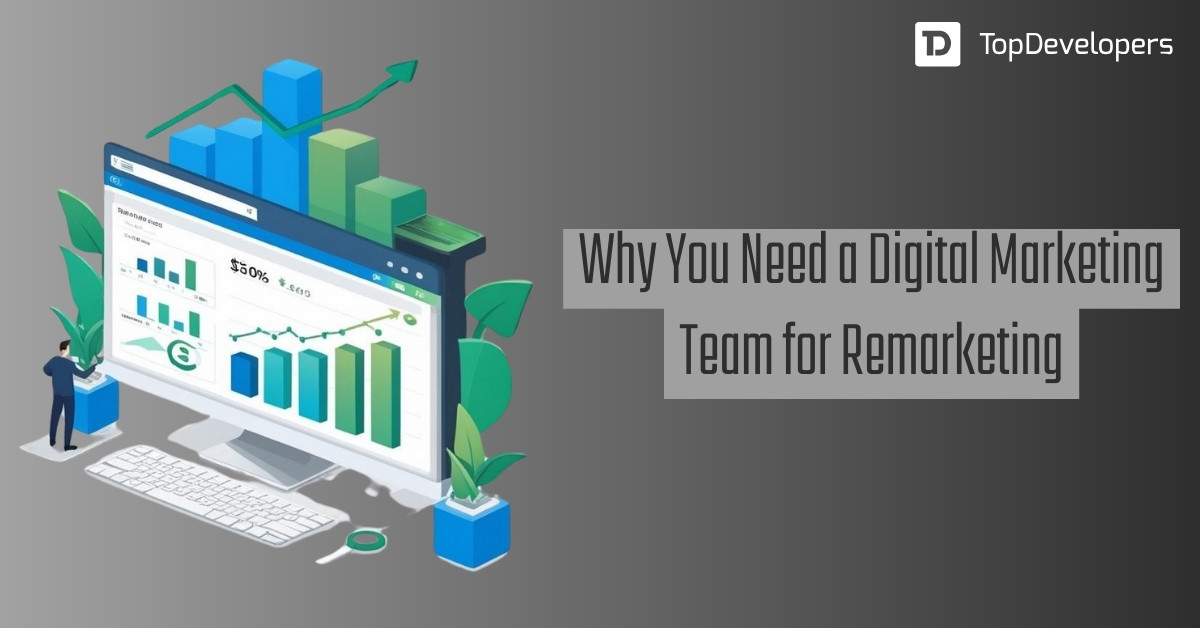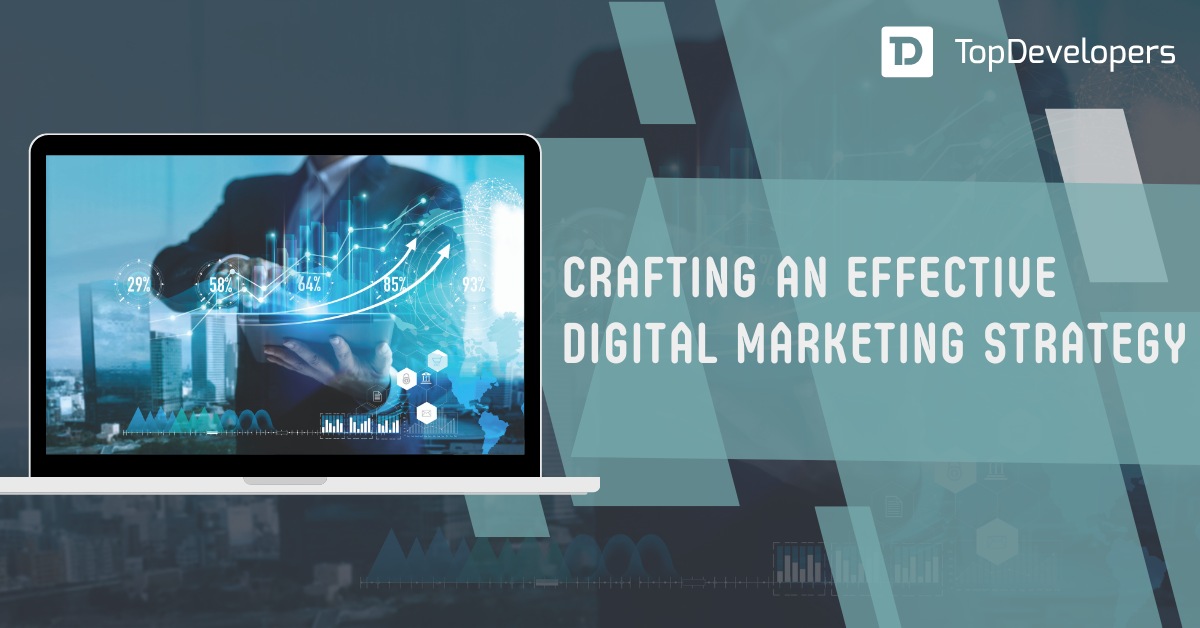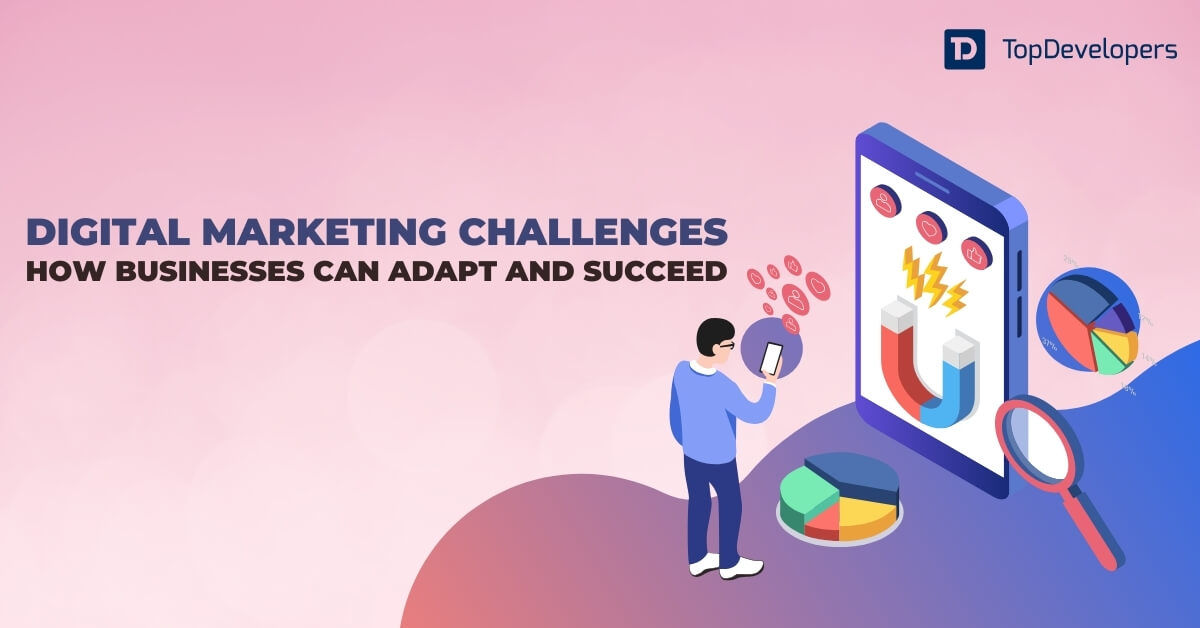
Social media and digital marketing are newly found treasure troves for businesses to promote their brand and connect with customers.
These two terms are often used interchangeably in the marketing industry. However, they are poles apart when you dig into their concept, strategy, and goals.
In the debate between digital marketing vs social media, the former is a broader concept that encompasses social media, email, Google Ads, SEO, affiliate, influencer, content and more types of marketing. In contrast, the latter is focused on marketing for social media platforms only.
This blog explains the difference between digital marketing and social media marketing (SMM). It explores how both take different approaches to metrics, tools, and audience engagement. Moreover, we will also look at how you can choose a mix of digital marketing and social media marketing to get the best results for your business.
Table of Contents
What Is Digital Marketing?
Digital marketing refers to online marketing or advertisement of a brand, service, or product using online platforms and technology.
The digital marketing strategy aims to promote products, build brand identity and create strong customer relations through SEO, email marketing, content marketing, and paid advertising.
In simple terms, digital marketing uses various marketing techniques to:
- Build brand authority
- Educate customers
- Attract potential customers
- Retain existing users
- Offer solutions to customer’s pain points
- Promote products/services
- Encourage customer engagement
If you look at the bigger picture, digital marketing is all about promoting your products, influencing customer buying decisions and boosting sales.
Digital marketing is a cost-effective way for businesses of all sizes to reach larger audiences and boost brand awareness. As per survey, businesses generate an ROI of $44 for every dollar spent on digital marketing.
What Is Social Media Marketing?
Social media marketing (SMM) refers to a marketing strategy that aims to create an impressive brand presence on social media platforms. It is focused on creating quality content like short videos, ads, posters, articles, and carousels on social media platforms.
86% of marketers believe that social media helps increase brand presence and website traffic.
The content strategy for social media is focused on building brand awareness, engaging with your audience, and driving conversions through a mix of informative, entertaining, and visually appealing content. The key is to create content that quickly grabs the attention of the audience.
The social media platform you choose depends on your business niche and target audience. You should select the platform that aligns with your brand image and where your target audience is most active.
For example, Instagram is best for beauty brands, whereas LinkedIn is suitable for B2B companies or Tech businesses.
Social Media Marketing Vs Digital Marketing: Key Differences
We saw that both digital marketing and social media marketing have similar objectives – promote products, connect with the audience, and boost sales.
Then what is the difference between digital marketing and social marketing? How are both different in their marketing approach? What are the different tools, methods and metrics used?
Let’s decode these factors and simplify digital marketing vs social media marketing for you.
Metrics
Digital marketing and social media marketing include different metrics that help you track your performance and profile growth over time.
Digital marketing encompasses metrics like conversion rates, CTR, cost per acquisition, return on investment, clicks, and impressions. These metrics help you track the performance of blogs, advertisement reach, website ranking, conversions, and overall campaign effectiveness. This enables digital marketing agencies to refine their strategy further and make data-driven decisions to maximize their ROI.
On social media, you have metrics like post impressions, likes, comments, follower growth, and engagement rate. These metrics help you monitor the performance of your posts closely. So, you can identify the posts that did exceptionally well by reaching a larger audience and garnering huge likes and followers, as well as the ones that were flopping. Moving forward, you can alter your social media content strategy, considering the factors that can make you go viral.
Content Strategy
The major difference between digital and social media marketing is the content strategy.
The content strategy for digital marketing encompasses multiple content formats and types for various purposes. For example, the content strategy for a website will be different than that of email marketing campaigns and ads.
Each subset of digital marketing will have a tailored content strategy depending on its target audience and goals. For example, content for blogs is in long format, whereas content for emails and ads is short and crisp.
On the contrary, the content strategy for social media is completely different. It includes videos, text posts, posters, carousels and short articles. The content on social media is short and creative to attract the attention of the audience quickly.
Target Audience
Another major difference between digital marketing and social media is the audience you can target through both methods.
Digital marketing uses online channels like websites, email, online forums, and other platforms to reach their target audience. Different channels have audiences with different intents, and businesses deliver tailored content that resonates with that intent. The audience reach of a website is broader than that of an email, where companies especially target a list of potential customers with high buying intent.
For social media, the target audience is defined by the type of followers you have and users with whom you engage. Though your posts on social media are visible to the public, the algorithm is set in a way that the posts are shown to the users who have an interest in your niche and with whom you engage most.
By following the latest social media marketing trends you can enhance your probability of going viral and get maximum engagement on your posts on social media networks.
You can also try paid ads on social media platforms like LinkedIn, Facebook and Instagram. The best thing about these ads is that you can select the country, region, age, gender, and other demographics of your targeted audience to whom the ads will be displayed on their newsfeed.
Tools
You cannot imagine digital marketing or social media marketing without tools. From analytics to content management and keyword research, you have a wide array of tools that simplify your tasks like keyword research, performance analysis, ad management, content planning and more.
For digital marketing, you can use tools like Google Search Console, Semrush, Ahrefs, PPC advertising platforms, WordPress, Mailchimp, Google Analytics and more. These tools are user-friendly and enable you to track your website performance, plan content strategy, research keywords, audit backlinks, identify technical SEO errors and more. Moreover, you also have specialized tools for keyword research, SEO Audit, email marketing, and advertisement which allows you to plan and execute email and ad campaigns.
On the other hand, for marketing on social media, you can use tools like Hootsuite and Buffer to manage daily activities. Then you have social listening tools like Brandwatch and Sprout Social to monitor social media conversations and brand mentions in real-time.
Social media marketing agencies prefer social listening tools to identify viral topics and audience sentiment. This helps them create content that resonates with the audience’s interests.
If you are interested in influencer marketing, then you can also try Influencing or AspireIQ.
Goals
The difference between digital marketing and social media marketing in terms of goals lies in their scope and specific objectives.
Digital marketing encompasses a wide range of online channels, including search engines, email, websites, and social media. The primary goal of digital marketing services is to reach potential customers across various online platforms.
A key objective is to generate leads and convert them into customers through various digital channels like SEO, PPC, email marketing, and content marketing.
Whereas for social media marketing the primary goal is to create and foster engagement with the target audience through likes, comments, shares, and interactions on social media platforms.
It emphasizes creating and maintaining a brand’s personality and voice, making the brand relatable and approachable.
Audience Engagement
Engaging with your audience is a crucial part of building strong customer relations. Both social media marketing and digital marketing offer unique ways to come closer to your customers and interact with them to understand their preferences.
Digital marketing strategies enable consistent engagement with your target audience. For instance, email marketing allows you to share valuable information about your business with potential leads, and personalized emails can re-engage shopping cart abandoners, helping you recover lost sales.
Additionally, content marketing lets you showcase your expertise, effectively communicating the advantages of partnering with your business and highlighting the value of your products and services to both current and prospective customers.
On the other side, when it comes to customer engagement, social media is the best way to connect with them directly. It offers a global platform for businesses to publish creative content to educate customers, promote products and build brand identity. Moreover, SMM platforms provide a medium to bring brands and customers closer to interact.
You can engage with your customers on social media by:
- Commenting on their posts
- Replying to their comments
- Sending personalized messages
- Asking for feedback
- Holding contests
..and more.
Lead Generation & Conversion
The difference between DM and SMM in terms of lead generation lies in their approaches, platforms, channels, strategies, and tactics.
Digital marketing leverages a variety of channels for lead generation, including search engines (SEO and PPC), email marketing, content marketing, affiliate marketing, and paid advertisements across the web.
Campaigns are often highly targeted based on keywords, demographics, browsing behavior, and other data points. This allows for precise targeting of potential leads who are actively searching for or have shown interest in specific products or services.
The focus is on converting website visitors into leads through well-optimized landing pages, forms, and calls to action across various digital platforms.
Whereas in the case of social media marketing, the focus is on generating leads by creating creative content on platforms like LinkedIn, Instagram, Facebook, Twitter, and others. The approach is more about how brands engage with their customers on social media and build a community.
Lead generation on social media is often driven by content that sparks curiosity in the audience like videos, quizzes, and ads that prompt users to sign up, download, or inquire further.
Online Channels
The major difference between digital and social media marketing is the online channels used.
Digital marketing strategies include channels like Google, YouTube, Email, Google Ads, Social media platforms, and online forums like Reddit and Quora. These channels’ marketing campaigns and approaches vary as they cater to different target audiences and business goals.
Social media marketing employs channels like LinkedIn, Facebook and Instagram. Some businesses also target platforms like Twitter, Pinterest, and TikTok depending upon the interest of the target audience. These online channels help you promote your brand, drive engagement, and increase brand awareness.
How to Choose Between Digital Marketing and Social Media Marketing?
Digital marketing Vs social media marketing is hard to choose. The decision depends on your business niche, marketing budget, and target audience.
However, the question is not about only digital marketing or social media marketing. The key to building a robust online presence, loyal community, and converting leads lies in how well you use a mix of marketing techniques.
You can use SEO, content marketing, and social media marketing in the initial stages. As your base becomes stronger and you start to get more website traffic and recognition on social media, you can move forward with Google ads, PPC, influencer marketing, and email marketing.
To start, you need to do extensive market research, competitor analysis, and audience audits. This will help you understand the market dynamics, competitors’ strategies, and audience preferences.
These data insights will help you plan your digital marketing campaigns effectively and optimize strategies for maximum ROI.
Digital or Social: Who is the Winner?
In the hot debate of digital marketing vs social media marketing, it’s hard to declare a winner. This is because social media marketing is a subpart of digital marketing. Whereas the latter is a broader concept that encompasses all the aspects of online marketing.
The difference between digital marketing and social marketing is the way both techniques utilize tools, metrics, and content to achieve desired results.
 Avantika Shergil
| Sep 6, 2024
Avantika Shergil
| Sep 6, 2024
Avantika Shergil is a technology enthusiast and thought leader with deep expertise in software development and web technologies. With over 8 years of experience analyzing and evaluating cutting-edge digital solutions, Avantika has a knack for demystifying complex tech trends. Her insights into modern programming frameworks, system architecture, and web innovation have empowered businesses to make informed decisions in the ever-evolving tech landscape. Avantika is passionate about bridging the gap between technology and business strategy, helping businesses build customized software and website, and understand about different tools to leverage effectively for their ventures. Explore her work for a unique perspective on the future of digital innovation.





